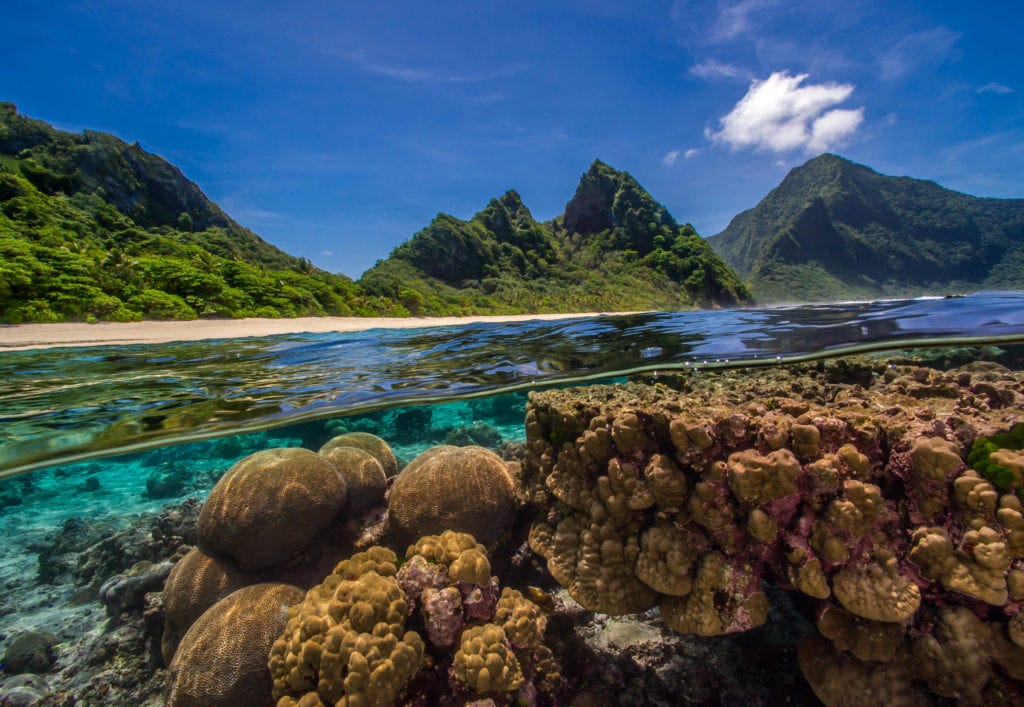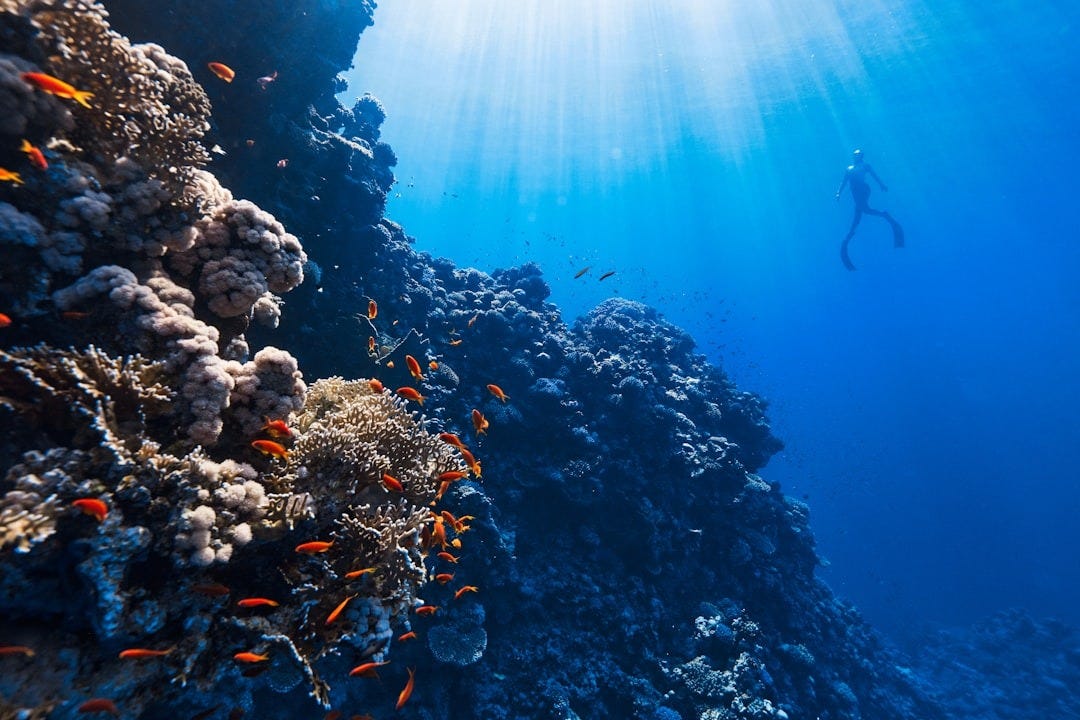I'm a scientist in America, and I need your help.
What's happening now will have permanent consequences. We need to talk about it.
American science is crumbling. This will affect you.
Published on Earth Day, 2025
Over the past several months, the federal government has undertaken a series of actions that collectively undermine environmental protections and scientific integrity. These measures not only threaten the health of our ecosystems but also jeopardize the foundational principles of evidence-based policymaking.
I’ve watched in real time as:
The U.S. withdrew from the Paris Climate Agreement (again): In January 2025, the United States officially pulled out of the world’s primary climate accord, abandoning its commitment to help limit global warming. This decision leaves us standing alongside just three other countries (Iran, Yemen, and Libya–um, yikes!) as the only nations refusing to participate in coordinated global climate action. It’s a staggering step backward at a time when international cooperation is more critical than ever.
The National Climate Assessment was halted: Funding for this critical, congressionally mandated report—which evaluates climate change impacts across the U.S.—has been cut, hindering our ability to assess and respond to environmental challenges.
NOAA faced significant budget cuts: The administration proposed a 27% reduction in the National Oceanic and Atmospheric Administration’s budget, including the elimination of its climate-focused research division. This threatens essential climate monitoring and research initiatives.
Protected marine areas were opened to commercial exploitation: An executive order lifted protections on the Pacific Remote Islands Marine National Monument, exposing nearly 500,000 square miles of ocean—home to endangered species like sea turtles and climate-resilient corals—to commercial fishing.
The coal industry received renewed support: Policies have been introduced to rejuvenate the coal industry, including expanding mining operations on federally protected lands, despite coal being a major contributor to greenhouse gas emissions.
Climate-related terminology in grant proposals was suppressed: Federal agencies issued guidance discouraging the use of terms like "climate change," "sustainability," and "biodiversity" in grant applications, raising concerns about censorship and the politicization of scientific research.
State-level climate policies were threatened: New federal directives aim to challenge and potentially override state-level climate initiatives, undermining local efforts to address environmental issues.
The EPA's scientific research division faced elimination: Plans were announced to dismantle the EPA's Office of Research and Development, potentially resulting in the loss of over 1,000 biologists and chemists, which would severely impact the agency's ability to conduct essential environmental research.
NSF grant funding has become increasingly unstable: While much of the public attention has focused on cancelled Diversity, Equity, and Inclusion (DEI) grants, researchers across disciplines are seeing their proposals stalled or abruptly rejected, seemingly without cause. The uncertainty has left labs in limbo, jeopardizing not only DEI-focused projects but also foundational environmental and basic science research that has nothing to do with DEI.
A mass exodus of scientists looms: A recent survey indicates that 75% of U.S. scientists who answered a poll are considering leaving the country due to the current administration's policies, signaling a potential brain drain that could have long-term repercussions on the nation's scientific landscape.
The list goes on…but we’ll stop here for now.
These decisions aren’t just policy shifts.
They’re existential threats to the planet I’ve dedicated my life to studying.
Because when coral reefs fall, the cascade begins.
The coastlines crumble. The wetlands dry. The forests burn. The crops fail. The ice melts. And the sea keeps rising.
It won’t matter how many climate reports we buried, how many agencies we gutted, or how much fossil fuel we hoarded.
The damage will be irreversible.
Species will vanish. Ecosystems will unravel.
And no amount of political backpedaling will bring them back.
But first–who am I
When I was 11, I went SCUBA diving for the first time. My parents had been diving in Cozumel, Mexico since college, and when my sister and I were old enough, they brought us along.
If you’ve been lucky enough to see a coral reef up close, you know just how incredible, breathtaking, magical, and (dare I say it?) spiritual the experience is. The colors! The life! My 11-year-old brain could hardly process what I was seeing. I had stepped off the back of a boat and into an alien metropolis–an entirely different planet.
I didn’t know it yet, but that dive set everything in motion.
Fast-forward seven years. I’m a Sophomore college student majoring in Biochemistry and planning to become a Nurse Anesthesiologist–mostly because I was good at biology and someone told me it paid well. Like most 18-year-olds, I had no idea what I actually wanted to do.
Then came Organic Chemistry. One soul-crushing exam later (shoutout to my professor who decided 47% was a “normal” class average), I left the lecture hall, walked straight to my department advisor, and said: “I think I’m in the wrong major.”
We reviewed my transcript. There was only one major that would let me graduate on time: Environmental Science. I could even tack on a Biology minor. So I switched right then and there. I didn’t know it at the time either, but it was the second time in my life that one experience fundamentally changed my life.
I started learning. About climate change. About biodiversity loss and the sixth mass extinction (that we are currently living through, and causing). About coral bleaching and ocean acidification. About the terrifying speed at which we are destroying the systems that sustain life on Earth.
I couldn’t look away. I knew then and there–this is what I was put on this Earth to do. We must save the planet. We have no other choice.
Last year I earned a Ph.D. in Quantitative Biology. My work focuses on understanding why some corals survive when exposed to stressors, like infectious diseases or increasing ocean temperatures, and why others don’t. This knowledge is critical for programs that are trying to selectively breed heat-tolerant and disease-tolerant coral to restore dying reefs. Because yes, we are now in the era of assisted evolution.
I’ve spent years studying how corals respond to disease, heat stress, and environmental stressors. But the more I learn, the more I realize that science alone won’t save us or the coral.
We can’t do this alone.
We need you. And that’s why I’m here.
I’m building a space for science and action
This isn’t just a newsletter.
It’s a call to action.
If you believe in science–real science, not the cherry-picked “science” that politicians used to get elected–this space is for you. If you care about the planet your kids (or nieces or students or neighbors) will inherit, this space is for you.
If you’re tired of watching truth get buried under propaganda, welcome. This space is for you.
Here, I’ll write about:
What it’s like to be a young scientist trying to do meaningful work in a country that’s actively eroding science
What’s happening to science in America–and why it matters far beyond academic circles
Deep dives into scientific topics relating to climate change
Actionable steps for people who want to help
But honestly, some posts will likely be part personal diary, part scientific reporting, part angry rant. Some weeks I’ll have a lot to say. Others I may be quiet, overwhelmed, and just trying to stay afloat.
What You’ll Get When You Subscribe
You’ll get posts in your inbox that aim to:
Pull back the curtain on relevant science and environmental research
Explain complex scientific topics in plain English (What is coral bleaching really? Why is biodiversity important and why is it collapsing?)
Connect the dots between federal policy and planetary consequences
Share small but meaningful ways to take action
All posts are free, but if you want to support this work (and keep me caffeinated) you can aways buy me a coffee. Lord knows I’ll need it.
Why Now? Why Earth Day?
Because I can’t stay quiet anymore.
Because scientific papers are not enough.
Because my job is not just to publish–it’s to communicate.
Because the world is on fire, and our leaders are pouring gasoline on it.
Because the stakes are too high, and the window to prevent irreversible damage is closing fast.
Because you need to know what’s happening, even when it’s hard to hear.





